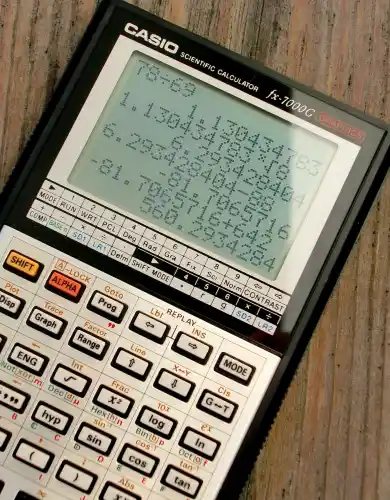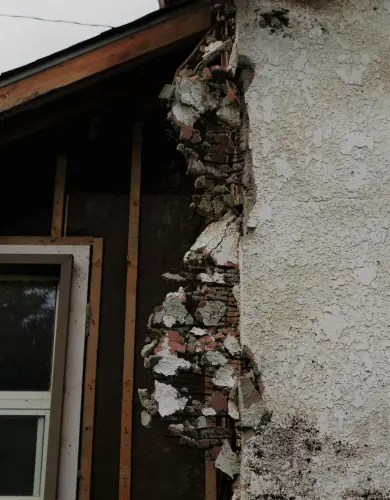What are the most difficult items to recycle for businesses?
Most businesses in the UK are committed to recycling as much as possible. Not only is this legally required, but it’s also the right thing to do for the environment as it reduces greenhouse gas emissions and pollution from landfills.
However, there is a significant difference in the recyclability of certain items.
While recycling untinted glass and carton boxes are relatively straightforward, complex plastics, e-waste, textiles, and niche items like ink cartridges and paint are troublesome and often end up in landfills or incinerated.
In this article, we explain with examples why some of these typical business items are so difficult to recycle and give you some ideas of what your business can do about it.
💡 Key takeaways:
- Complex in, complex out: Items that are made from many different materials are often hard to recycle because their separation is both costly and laboursome.
- A rising tide of e-waste: Electronic wastes are the fastest growing, yet contain the highest value materials in precious and rare metals.
- Solutions in the waste industry: Recycling businesses and NGOs are tackling the recycling of niche waste types such as ink cartridges and toners and spent coffee grounds by upcycling these into high-value products or demanding payment when unprofitable.
E-waste recycling
E-waste, electronic waste or WEEE refers to devices that become unrepairable or obsolete, ceasing to be useful for a business. It’s the fastest-growing waste type in the UK and globally due to the continuous transition into a fully digital world.
Typical workplace examples include unrepairable or obsolete mobile phones, laptops, office phones, bells & alarms, cables, canteen appliances like electric kettles, toasters, and fridges, and even electric power tools like hand drills and nail guns.
The issue with electronic devices lies in their complex material compositions. Most are made of plastics, metals, glass, and hazardous components in batteries and pumps. Separating these materials requires specialist equipment, and manual sorting necessitates health and safety measures due to the hazardous nature of some components.
This issue would be avoidable if recyclability were prioritised in product design. However, this area lacks global coordination, with tech firms often competing fiercely and winning by tight margins, leaving environmental concerns aside.
Data security is another concern: many enterprises handle sensitive data and must ensure that recycling their devices does not risk data breaches. While in-situ hardware destruction prior to collection can solve this, it remains a sensitive issue, as a single breach can cost firms billions of pounds.
💡Check out our guide on confidential waste collection services that offer a solution to this problem.
Finally, the lack of recycling infrastructure in the UK exacerbates the problem. There isn’t the capacity to recycle everything, leading to disposal in landfills or international exports. The UK’s track record in rapidly building infrastructure, exemplified by the recent failures of HS2 and the doomed third runway at Heathrow Airport, offers little hope for a swift solution.
In summary, solving the e-waste recycling conundrum requires a global effort from all actors in the electronic device supply chain. As a business, the best course of action is to adhere to the waste hierarchy, re-using or repairing as many devices as possible, and, where this is not feasible, carefully separating e-waste for separate collection.
💡 E-waste guide: See our detailed guide on commercial electronic waste recycling, including the different types of e-waste and your legal duties.
Plastic recycling
While plastics are widely recycled in the UK and around the world, they are, in reality, a very troublesome group of materials. In fact, there are many different types, each requiring a distinct recycling process. “Recyclable” plastics typically encompass a few common types like PET, HDPE, and LDPE, including plastic drinks bottles and yoghurt containers.
Here are a few examples of some problematic plastics:
| Plastic | Common items | Difficulty |
|---|---|---|
| PVC | Shower curtains, garden hoses, vinyl flooring | Contains chlorine and toxic additives. |
| PS (Polystyrene) | Disposable coffee cups, take-out food containers, packing peanuts, CD cases | Brittle, light weight and low value: It will easily contaminate other plastic recycling. |
| Flexible Plastics | Plastic bags, wraps, films, snack, pet food, and personal care product pouches | Flexibility and contamination make them unsuitable for most recycling facilities |
| Composite Plastics | Multi-layer snack bags, chip bags, juice pouches, some food packaging | Made from different types of plastics and materials; nearly impossible to separate and recycle |
| Plastic-Coated Paper | Coffee cups, milk cartons, frozen food boxes | Plastic coating is challenging to separate from paper, complicating recycling |
Since plastics are inexpensive, they are extensively used in single-use industries like food packaging. This not only leads to waste but also often dry mixed recycling being contaminated with food residues, which needs an extra (costly) decontamination stage at recycling facilities.
This exacerbates the substantial cost gap between producing virgin plastic products from hydrocarbons and using recycled plastics. Recycling problematic plastics is simply too expensive and requires intervention to make it economically viable. On top of this, plastics cannot be recycled indefinitely (like glass) as their quality decreases after each recycling cycle.
💡 Producer responsibilities: In summary, plastic recycling will remain a challenge as long as manufacturers do not consider plastic recyclability at the design stage. This is expected to change with the introduction of Extended Producer Responsibilities (EPR) in response to the recent Environment Act 2021.
Printer ink cartridges
This niche component can be typically found in office waste. Made of a combination of low-value materials, this largely single-use component of printers has been filling landfills for decades, with its hazardous ink and toner leftovers posing a contamination risk to nearby soil and water.
Recycling a used ink cartridge and toner is labour-intensive (requires manual disassembly), and unlike e-waste, its mostly plastic components are low-value and hard to recycle.
Fortunately, some organisations have been working tirelessly to bring a recycling solution to this unattractive waste. Some are providing paid collection services for both small businesses and enterprises who want to recycle these items to meet their Corporate Social Responsibility and ESG requirement (as well as their legal duty of care).
Here is a comprehensive list of ink cartridge commercial recycling organisations in the UK:
💡 Much work to do: According to printerland, 65 million printer cartridges are sold each year in the UK, but only about 15% are recycled or reused.
Others
This short article has too many hard-to-recycle items to cover in detail. While we believe that e-waste, plastics and ink cartridges are particularly problematic, here are a few other notorious business items whose recycling is far from ideal:
- Aerosol and paint cans: Toxicity and contamination make these difficult to recycle into metal containers.
- Batteries: Often mixed with e-waste, stand-alone batteries have toxic chemicals and can self-ignite, among other problems. (Batteries are a form of commercial hazardous waste)
- Rubber items: Difficult to recycle due to their complex chemical composition and the vulcanisation process that makes them durable and therefore resistant to breaking down.
- Textiles and carpets: Hard to separate. Especially those made from a mix of materials such as synthetics, cotton and wool.
- Chemicals: Industrial chemicals, pesticides, cleaning agents and lubricants need specialised treatments.
Difficult items to recycle for businesses – FAQs
Our business waste experts answer commonly asked questions on the most difficult items to recycle for businesses in the UK.
What are the environmental impacts of not recycling difficult items?
Unfortunately, items that are not recycled end up in the general waste stream, ultimately reaching landfills or incinerators. The environmental impacts of these wastes depend on whether they are buried or burnt and how their chemistry changes in these conditions.
For instance, organic wastes release methane when disposed of in landfills, while incinerated plastics release toxic gasses into the atmosphere.
Read our detailed article on the environmental impacts of commercial waste for more.
Are there government incentives to support businesses in recycling difficult items?
Unfortunately, there are very few tangible government programs that support businesses in recycling challenging items. These include UK Research and Innovation grants for research centres and startups working on the transition into a circular economy and the Landfill Tax that businesses must pay per volume of general waste to incentivise recycling.
Support can often be found in NGOs and businesses specialising in niche recycling applications. See our section on ink cartridge recycling to see which organisations can help your business recycle its printer waste.
What are the easiest items to recycle?
Common materials such as glass, paper, cartons, and recyclable PET plastics found in everyday items have established recycling systems. Despite there being some challenges with each waste type, such as tinted glass and plastic-coated paper, the fact that people are accustomed to recycling these, coupled with the availability of numerous disposal points, decades of recycling experience, and their prevalence in common items, makes them the easiest to recycle.
However, other waste streams like spent coffee grounds are rapidly establishing themselves because they are easy to segregate and can be processed or ‘upcycled’ into high-value items such as biofuel pellets.
What should my business do about hard-to-recycle items?
The best way to maximise commercial recycling is to segregate business waste streams at source and store these separately in commercial waste bins.
Next is to find a commercial waste collection provider to pick up your waste and recycle it at a local recycling facility.
We help businesses lower their commercial waste collection costs with our simple comparison service. Find a better commercial waste disposal service today.

